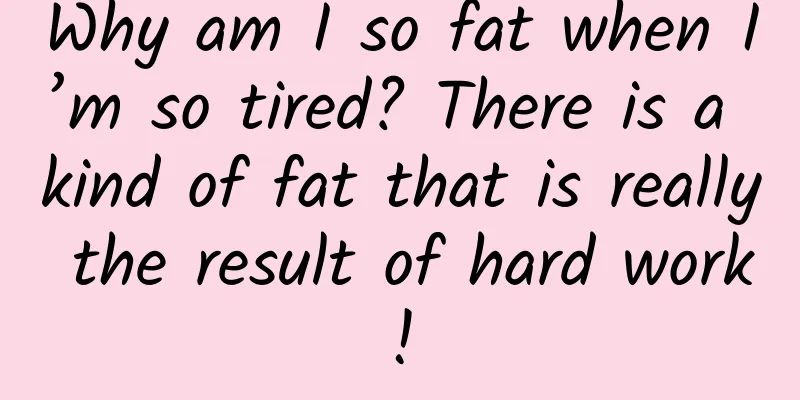Why do people hiccup? There are some tricks to stop hiccups

|
What is hiccups? I believe everyone has experienced hiccups, which is medically called "hiccups". Sometimes I hiccup for no apparent reason and I want to stop, but I can’t. How do hiccups occur? Hiccups are caused by the sudden involuntary contraction of the diaphragm and other respiratory muscles. Air is quickly inhaled into the lungs, followed by a sudden closure of the glottis, which causes the "uh, uh, uh" sound. Why does the diaphragm contract? This remains a mystery. Charles Osborne began to burp in 1922 after a pig fell on him. This hiccup lasted for 68 years, making him the current Guinness World Record holder for the longest hiccup. Scientists still haven't figured out why he hiccups. Maybe it’s because of “pig burps of love”? Common causes of hiccups include: 1. Eating too fast or too much during meals; 2. Drink too much carbonated drinks; 3. Smoking, drinking, eating spicy food and other gastrointestinal or respiratory tract irritation; 4. Excessive excitement or anxiety, especially when accompanied by hyperventilation or air swallowing, such as in hysterical patients, can cause hiccups due to swallowing large amounts of air. If the hiccups continue for more than 48 hours (2 days), it is called persistent hiccups. Generally, it indicates that there may be organic lesions. At this time, you need to see a doctor in time to check for other possible diseases. Especially for the elderly, if they keep hiccuping for several days, they should go to the hospital to rule out organic diseases. Because certain cancers, such as liver cancer, stomach cancer, etc., if they put pressure on the diaphragm, they can also cause stubborn hiccups and constant burping. What are some ways to stop hiccups? 1. Breath-holding Simply hold your breath for 30 to 45 seconds. Or wash your hands, put your thumb in your mouth, and gently press the back 1/3 of the upper palate. People with poor cardiopulmonary function should use this method with caution. 2. Bend over and drink water Drink a few sips of warm water, swallow it slowly, and bend over 90 degrees 10 to 15 times. Because the stomach is close to the diaphragm, it can warm the diaphragm from the inside. When you bend over, your internal organs will also massage the diaphragm, relieving diaphragm spasms and stopping hiccups. 3. Use your tongue to stick out Place a piece of clean gauze on your tongue, pinch your tongue with your fingers and stretch it outwards. 4. Startle method When the person who is hiccuping is not paying attention, scare him suddenly. As a strong emotional stimulus, fright can be transmitted through the cortex to the subcutaneous center, inhibiting diaphragm spasm. (Note: Patients with hypertension or heart disease should use with caution.) If you have tried many methods but still cannot stop the hiccups, and the hiccups continue for a long time, please go to the hospital to see a doctor immediately. References: [1] Xu Jingwei, Dai Wei, Ge Junling, et al. Research progress on the pathogenesis and diagnosis and treatment strategies of hiccups[J]. Chinese Medical Journal, 2017, 52(6): 17-20. |
>>: What traditional food do we eat during the Lantern Festival?
Recommend
The probability of natural conception at age 47
Artificial insemination, when it comes to these f...
What is the difference between 2 fingers and 2 fingers?
Now that the country has opened up the two-child ...
The pros and cons of vaginal delivery
There are two ways for women to give birth: natur...
Big and protruding eyes may be a disease
Modern urbanites lead fast-paced lives and face g...
What to do if your feet are swollen when you are 8 months pregnant
In the eighth month of pregnancy, the belly becom...
What should I do if I can't get over a premature love breakup? Is it useful to see a psychologist after a breakup?
Find a box and store all the things that trigger ...
What causes excessive vaginal discharge during the luteal phase?
The corpus luteum is the most important reproduct...
"Will children become stupider after surgery under general anesthesia"? Don't be misled again!
As an anesthesiologist, I may often encounter par...
Nasal congestion, runny nose, loss of smell? The cause of the endless "breathing pain" has been found!
Nasal congestion, runny nose, breathing only thro...
Why are my breasts getting bigger and more painful?
Many girls may be curious about why their breasts...
How much is Lay's 2020 New Year's Year of the Rat blind box and where to buy it? How to get the 2020 Lay's New Year's Year of the Rat blind box
We all know that blind boxes are a popular game t...
Women are more likely to suffer from gynecological diseases if they are under too much stress
It turns out that gynecological diseases are not ...
What is the reason for the transparent gel secretion of girls?
Because women's menstrual period is very spec...
Distribution map of female ovaries and uterus
As we all know, the uterus, uterus and ovaries ar...
What are the effects of eating mussels directly? What are the benefits of eating mussels?
Mussels are rich in essential fatty acids, which ...









